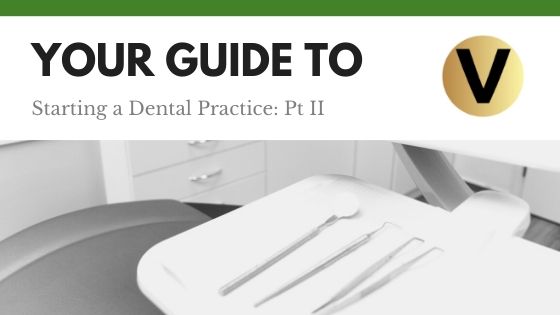In the last blog post, we went over some of the first steps you should complete when preparing to launch a dental practice for the first time. Of course, there are many more steps you’ll have to complete before your first patients enter the practice. The next steps are outlined here.
Write Your Business Plan
Your business plan can make or break your dental practice. Think of it as a road map for the future of your practice. How do you see the practice developing over time? What will it take in order for you to meet your goals? How do you plan to avoid any roadblocks? Decide your mission statement and core values. Ask yourself how you plan to incorporate them into the structure.
If you want to use a business plan template, check with your state dental association or visit the ADA Resource Center.
Secure Your Financing
Although many groups are open to lending to dentists, few banks understand the funding requirements that come with a startup dental practice. Interest rates shouldn’t be the only deciding factor when choosing your financing. Other factors include the following.
A long loan term ensures you will have lower payments, giving you time to grow your sources of revenue as time goes on. If your business thrives, you can pay down your loan earlier than you originally expected.
You should also consider the pre-payment terms. Once your practice is established and out of the startup phase, you may be able to prepay your loan. In order to do so, you’ll have to prove that you have adequate cash flow and that the new loan is in your best interest.
Interest rates can be fixed or be adjusted to other rate indexes. Ideally, you’ll want to lock in a competitive fixed rate for as long as possible.
Refine Your Business Skills
Chances are your dental school left you feeling well-equipped to handle the pressures of being a dentist. Most of the time, however, you don’t learn the business skills you need in order to run a successful practice. Create a list of any knowledge gaps you may have, and then educate yourself. Speak to others who run successful practices. Find out if there are any seminars or workshops near you. You can also find a variety of books on most topics.

